September 2016 marks the fifteen-year anniversary of President George W. Bush’s declaration that the United States was now engaged in a global “war on terror.” The fall 2016 Scripps College Humanities Institute lineup features a series of lectures and discussions about how this global war on terror has–and has not–changed both the United States and the world in the twenty-first century.
“When we talk about everything from the wars in Iraq and Afghanistan, to drone warfare, to Guantanamo Bay and other offshore detention sites, to torture in Abu Ghraib and elsewhere, to the surveillance of U.S. citizens, to racial profiling, to the arrest and deportation of activists in the U.S., to hate crimes against Muslims and Arabs and South Asians – all of this is part of the War on Terror,” said Director of the Humanities Institute and anthropology professor Lara Deeb. “The goal of the fall series is to ask difficult questions about the impact and consequences of this global war for different people around the world, including in the U.S.,” added Deeb. The series opens and closes with lectures focused on the United States.
Events take place on the Scripps College campus, are FREE, and open to the public. For information and directions, visit http://www.scrippscollege.edu/hi/2016-fall.
Highlights for the Scripps Humanities Institute Fall Lecture Series:
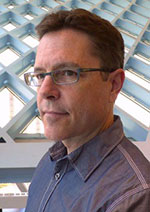 Anticipatory States and Planetary Perils
Anticipatory States and Planetary Perils
Joseph P. Masco, professor of anthropology at the University of Chicago
Tuesday, SEPTEMBER 20, 4:15pm
Balch Auditorium
University of Chicago professor Joseph Masco will speak about the relationship between emotions like fear and violence in “Anticipatory States and Planetary Perils.”
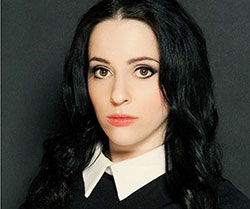 Drawing Blood: Molly Crabapple
Drawing Blood: Molly Crabapple
Thursday, October 6, 7pm
Garrison Theater
“A punk Joan Didion, a young Patti Smith with paint on her hands, a twenty-first century Sylvia Plath.” —Booklist
Art, sex, politics, and survival in our times: For Molly Crabapple, this has been her life’s work. And it’s taken her from New York City’s burlesque scene, to the torture trials in Guantanamo Bay, Cuba, to the Occupy protests on Wall Street. In her memoir, Drawing Blood, she explores the role of the contemporary artist, all the while reflecting on the particular and very real challenges of being a woman in a medium (and a society) where men and their work are often privileged.
Molly Crabapple is an artist and writer. She is a contributing editor for Vice and has written for the New York Times, the Paris Review, and the Guardian, among other publications. Her work is in the permanent collection of the Museum of Modern Art. She lives in New York City.
This program is presented in partnership with “Scripps Presents.”
The Global War on Terror from the Standpoint of its Victims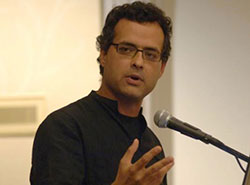 Vijay Prashad
Vijay Prashad
Tuesday, OCTOBER 11, 7pm
Balch Auditorium
Seen from a village in Waziristan, in the upper reaches of Pakistan, the Global War on Terror (GWOT) appears quite differently than it does in the anti-septic briefing rooms at CIA headquarters in Langley, Virginia. To understand the GWOT from that vantage, Vijay Prashad – professor at Trinity College, prolific journalist, and author – decided to report from the villages that are in the gun-sights of drone operators. Prashad will take us through the landscape of the GWOT, and assess its various impact on countries as diverse as Afghanistan, Iraq, Syria and Libya.
Vijay Prashad is George and Martha Kellner Chair of South Asian history and professor of international studies at Trinity College, and the author of over twenty books, including The Death of the Nation and the Future of the Arab Revolution and the two volume series – The Darker Nations: A People’s History of the Third World and The Poorer Nations: A Possible History of the Global South. He writes every week for Alternet, has written every fortnight for twenty-seven years for the Indian newsmagazine Frontline, and is the Chief Editor of LeftWord Books (New Delhi). Prashad is a graduate of Pomona College (class of ‘89).
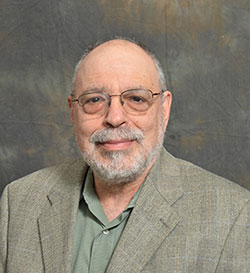 Representing and Defending Political Activists in U.S. Courts in the Age of Terrorism
Representing and Defending Political Activists in U.S. Courts in the Age of Terrorism
Michael Deutsch, attorney with the Chicago People’s Law Firm
Thursday, OCTOBER 27, 12:15pm
Hampton Room
Renowned human rights attorney Michael Deutsch will discuss the emergence of Federal and State “terrorism” laws, including sentencing enhancements, special court secrecy and security procedures and the use of Grand Jury inquisitions which target and criminalize political activists involved in international solidarity work and domestic protests and demonstrations.
Michael Deutsch is a human rights attorney with the Chicago “People’s Office,” and a past Legal Director of the New York based “Center for Constitutional Rights.” Mr. Deutsch, a public interest lawyer of the year, has served on the legal teams of the rebelling Attica prisoners and Puerto Rican independence activists, has challenged the use of special high security prison control units, and has successfully defended Black prisoners facing the death penalty. Most recently Mr. Deutsch has represented Palestinian activists in the United States and “Occupy” demonstrators falsely accused under Federal and State terrorism statutes.
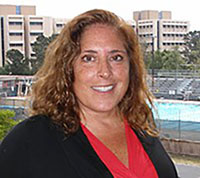 Owning Up to American Torture
Owning Up to American Torture
Lisa Hajjar, Professor of Sociology, UC Santa Barbara
Thursday, NOVEMBER 10, 7pm
Balch Auditorium
Within days of the 9/11 terrorist attacks, some officials in the Bush administration began contemplating the notion that captured suspects might need to be tortured in order to collect “actionable intelligence.” Over the next few months, the ground was laid–through an executive order, legal opinions, and policy directives–for what developed into the US torture program involving both the military and the CIA. Between 2006 and 2009, the program collapsed and finally was ended. However, there has been no accountability for those responsible for perpetrating or abetting the crime of torture, and this has enabled an increasingly vocal pro-torture constituency within the US. In this talk, Lisa Hajjar explains the connections among legal accountability, empirical knowledge and analytical accuracy and argues that we need a turn in U.S. domestic politics that owns up to the legacy of torture which is now a part of this nation’s history.
Lisa Hajjar is Professor of Sociology at the University of California at Santa Barbara. Her areas of research and expertise include human rights, international law, torture, war and conflict. She is the author of two books: Courting Conflict: The Israeli Military Court System in the West Bank and Gaza (University of California Press, 2005) and Torture: A Sociology of Violence and Human Rights (Routledge, 2012), and is currently writing a third about anti-torture lawyering in the United States in the post-9/11 period.
 The Quran in the American Imagination
The Quran in the American Imagination
Zareena Grewal, Associate Professor of American Studies and Religious Studies, Yale University
Thursday, DECEMBER 1, 7pm
Garrison Theater

